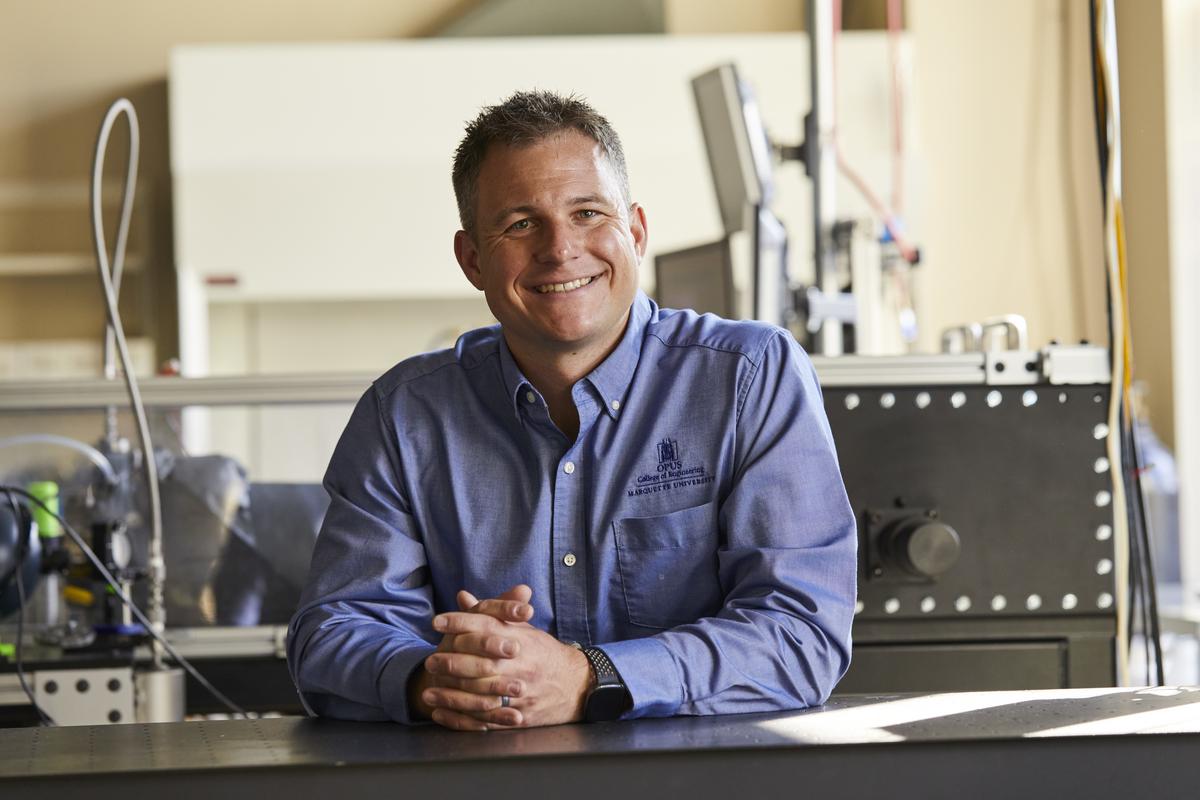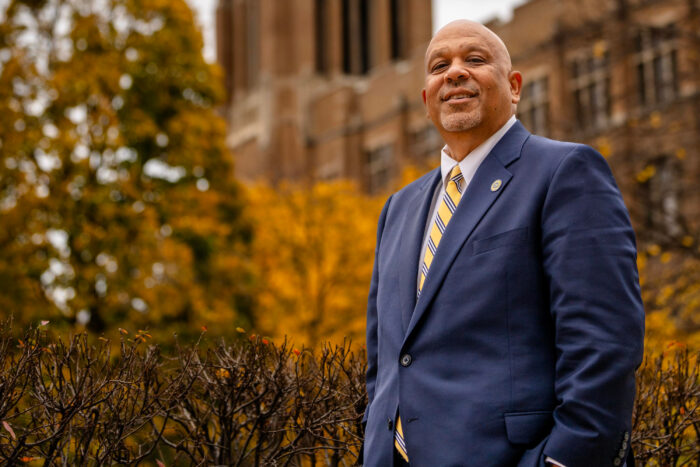 Dr. Adam Dempsey, assistant professor of mechanical engineering in Marquette University’s Opus College of Engineering, has been awarded a research grant worth nearly $4.2 million from the U.S. Department of Energy to enable innovative technology for lean-burn natural gas engines with the potential to reduce methane slip by 90% from current levels.
Dr. Adam Dempsey, assistant professor of mechanical engineering in Marquette University’s Opus College of Engineering, has been awarded a research grant worth nearly $4.2 million from the U.S. Department of Energy to enable innovative technology for lean-burn natural gas engines with the potential to reduce methane slip by 90% from current levels.
“Prechamber Enabled Mixing Controlled Combustion of Natural Gas for Ultra-Low Methane Emissions from Lean-Burn Engines,” will be funded for three years through the DOE’s Advanced Research Projects Agency–Energy (ARPA-E) Reducing Emissions of Methane Every Day of the Year (REMEDY) program. This is Dempsey’s second grant from the DOE awarded in 2022, which will utilize his research in engine combustion technology.
“Methane is a potent greenhouse gas and has been shown to have a global warming potential of about 25-80 times that of carbon dioxide,” Dempsey said. “Our aim is to develop a system to achieve a non-premixed, mixing controlled combustion process with natural gas in a lean-burn engine, avoiding the primary sources of methane slip that come with premixing the fuel and intake air. This has the potential to reduce methane slip to 0.25% of the inlet fuel stream, which represents a 90% reduction.”
Dempsey and his team will work to demonstrate their mixed-controlled combustion system, which can be retrofitted into lean-burn engines or as a new engine technology for the future. The combustion process yields a robust system which is applicable to all reciprocating engine applications that use natural gas. Additionally, because knock and pre-ignition are non-issues for non-premixed combustion, future engine designs can utilize high compression ratio and thus deliver high thermal efficiency. At the conclusion of the project, the concept will be demonstrated to a level at which an original equipment manufacturer could confidently make retrofit kits of current engines and begin integrating the technology into their future engines with low risk.
“Through his technical expertise, creativity and leadership, Dr. Dempsey is identifying collaborative solutions to present economic and environmental challenges,” said Dr. Kristina Ropella, Opus Dean of the Opus College of Engineering. “I am grateful for his efforts toward a cleaner future.”
Sub-awardees on the grant are MAHLE Powertrain, Czero, Inc. and the University of Wisconsin–Madison’s Engine Research Center.
The Department of Energy’s ARPA-E advances high-potential, high-impact energy technologies that are too early for private-sector investment. ARPA-E awardees are unique because they are developing entirely new ways to generate, store, and use energy. Its REMEDY program is a three-year, $35 million research effort aimed at reducing methane emissions from three specific point sources from the coal, oil and gas sector. These three sources are responsible for 10% of anthropogenic methane emissions. REMEDY seeks technical solutions that can achieve 99.5% methane conversion and commercial scalability. If successful, REMEDY systems could dramatically reduce U.S. greenhouse gas emissions at low cost.




